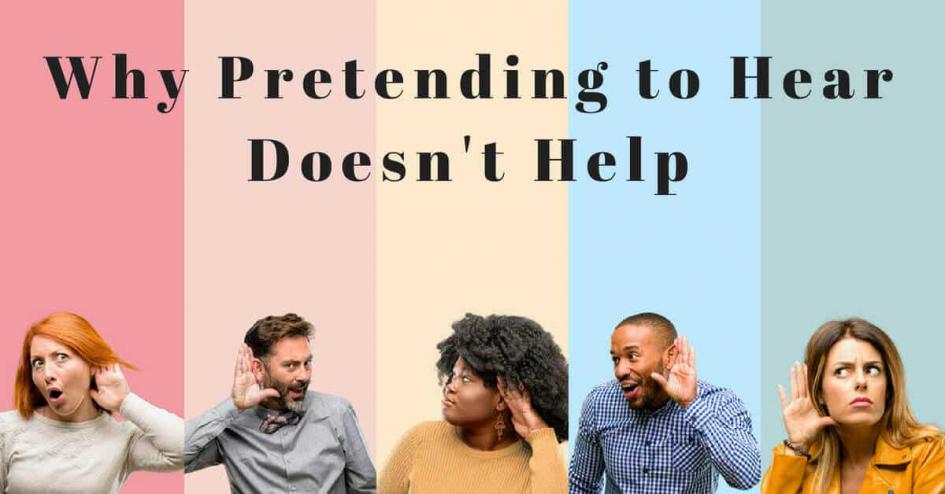
Why Pretending to Hear Doesn't Help
Jun 11, 2018
It takes an average of ten years for a person to seek professional help after their first issue with hearing loss. Hearing aids have been proven to help dramatically, but it can still be difficult to hear in background noise--and there are a lot of people pretending to hear their friends in noisy restaurants around the world. If you have a hearing loss that you often hide from others, read on to find out why this is harmful, and how to break the habit.
Why we sometimes hide our hearing loss
- Wanting to fit in.
- The hearing aid taboo.
- Feeling unsure about when and how to bring it up.
- Fear of being treated differently.
Why you should break the habit
Learning to live with hearing loss is an ongoing journey and placing more trust in others by letting them know about your hearing difficulties will make that journey much less lonely. In the workplace, pretending to understand something that you haven’t heard can seriously hurt your job performance, making it more challenging for you to get ahead. On the other hand, being upfront about your hearing loss and asking for the accommodations you need will actually boost your confidence, as you’ll be in the loop about everything you need to know. There are so many benefits to admitting your hearing loss to those around you, but you may still find it uncomfortable or be unsure of what to say. In this case, it may help to prepare a script, something quick and simple that you can use in a number of different situations. Your script should mention your hearing loss, explain what hearing challenges you’re currently having, and suggest specific ways to help you hear better. For example, your script could be: “I have hearing loss, so I didn't quite catch that. Could you rephrase what you just said?” Armed with the right hearing aids, and an open, positive attitude about your hearing loss, you’ll see the roadblocks in your path falling away. Contact us at House of Hearing for a consultation.Our Clinics
All House of Hearing clinics are in town centre locations and accessible to public transport and parking. Home visits also available if mobility is an issue.


.png)
.png)
.png)

.png)
